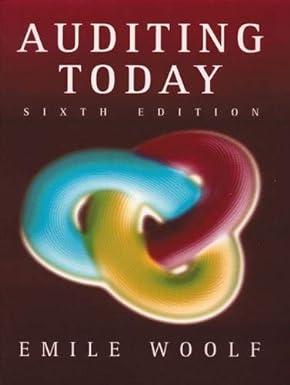E9-13 Determining Actual Costs, Standard Costs, and Variances [LO 9-3, 9-4]
Amber Company produces iron table and chair sets. During October, Ambers costs were as follows:
| |
| Actual purchase price | $ 3.10 | per lb. |
| Actual direct labor rate | $ 8.30 | per hour |
| Standard purchase price | $ 2.90 | per lb. |
| Standard quantity for sets produced | 1,050,000 | lbs. |
| Standard direct labor hours allowed | 21,000 | |
| Actual quantity purchased in October | 1,325,000 | lbs. |
| Actual direct labor hours | 18,000 | |
| Actual quantity used in October | 1,080,000 | lbs. |
| Direct labor rate variance | $6,300 | F |
| |
Required: 1. Calculate the total cost of purchases for October.
2. Compute the direct materials price variance based on quantity purchased. (Indicate the effect of each variance by selecting "F" for favorable, "U" for unfavorable.)
| |
| | | Direct Materials Price Variance | | | |
3. Calculate the direct materials quantity variance based on quantity used. (Indicate the effect of each variance by selecting "F" for favorable, "U" for unfavorable.)
| |
| | | Material Quantity Variance | | | |
4. Compute the standard direct labor rate for October. (Round your answer to 2 decimal places.)
| |
| | | Standard Direct Labor Rate | | |
5. Compute the direct labor efficiency variance for October. (Round your intermediate calculation to 2 decimal places. Indicate the effect of each variance by selecting "F" for favorable, "U" for unfavorable.)
| |
| | | Direct Labor Efficiency Variance | | | |






